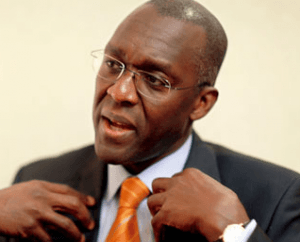Let’s turn the lights on across Africa – Makhtar Diop

I’m in Tokyo this week for the World Bank-IMF Annual Meetings and on Friday I will open the Bank’s global conference to look more closely at the serious energy challenge facing Africa.
Consider this stunning fact―only 1 in 3 Africans has access to electricity on the continent.
And that is why too little electricity is one of the biggest challenges I see standing in the way of Africa achieving steadily higher growth rates, better education for its children and teenagers, good quality health services that work, farms and agribusinesses that can grow enough cheap nutritious food for Africans to eat, just to name some of the transformational priorities which can happen when we turn the lights on across Africa.
I confess I am passionate about lighting up homes, schools, businesses, clinics, libraries, and parliaments across the continent. As a child growing up in Senegal, I knew first-hand about power shortages. More power for Africans will allow them to transform their living standards and turn the continent’s growth into tangible benefits for all.
Energy security is a key priority for my work as World Bank Vice President for Africa, and my team is moving ahead relentlessly to put power infrastructure in place to plug regional communities into cross-border power pools, more irrigated land to grow food and create jobs, galvanize more trade and commerce within the region, and to unlock all the other development potential that electrical power makes possible.
In the past six months, we’ve seen the launch of the Lom Pangar Hydropower Project on Cameroon’s Sanaga River. The World Bank is a key partner to the project, which will increase electricity generation and improve the reliability of power supply for up to five million people and help lower the costs. This will mean less frequent power cuts especially during the dry season and more productive investments.
We’ve also helped fund the Regional Eastern Africa Power Integration Program, the first phase of which will connect Ethiopia’s electrical grid with Kenya, creating power-sharing between the two countries, reducing energy costs and promoting sustainable and renewable power generation. The project will be transformational for Kenya, a country with enormous potential to reach middle-income status in the next decade, but where severe power shortages are hampering growth. For both countries, it will mean more jobs.
Most recently, we approved the Niger Basin Water Resources Development and Sustainable Ecosystems Management Program. The project will not only generate more electricity, but increase food production, boost jobs, and create economic opportunities for families and communities in the nine countries that make up Africa’s Sahel region.
Together these projects stand to bring more power to millions of people, bettering the lives of mothers, school children, teachers, doctors, shopkeepers, and others–people who need electricity to thrive and do more for their families and communities. And we are delivering on these big regional projects at the express wish of our African Governors who have made their delivery a priority for the continent.
So back to Friday’s conference…we will have Finance Ministers from Africa and other regions taking part along with Japanese officials who will share their country’s lessons on keeping the lights on.
Without electricity, Africa’s development future cannot prosper. The good news it that much is being done to change this, and that governments are focused on it. Our job at the World Bank is not done until all Africans can turn the lights on at home, at work, and nationwide.
By Makhtar Diop
World Bank Africa Region Vice President
